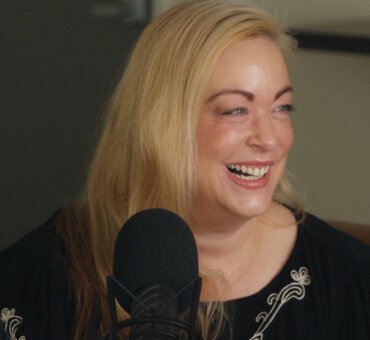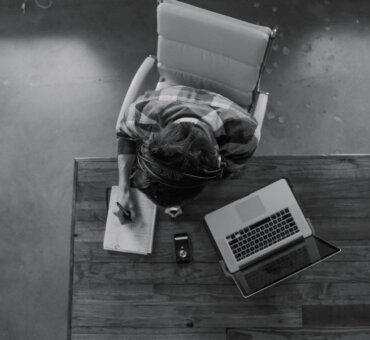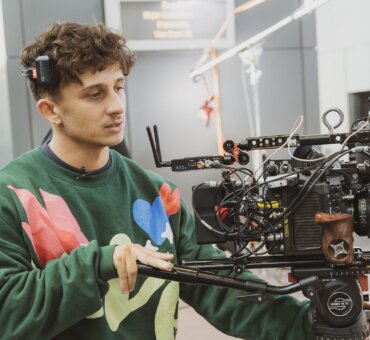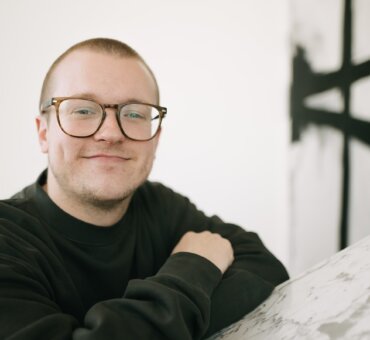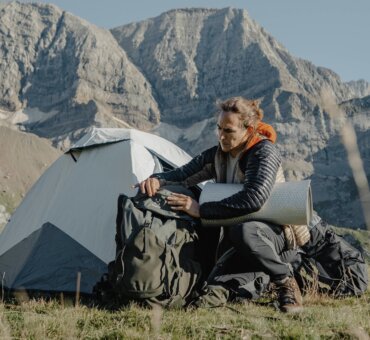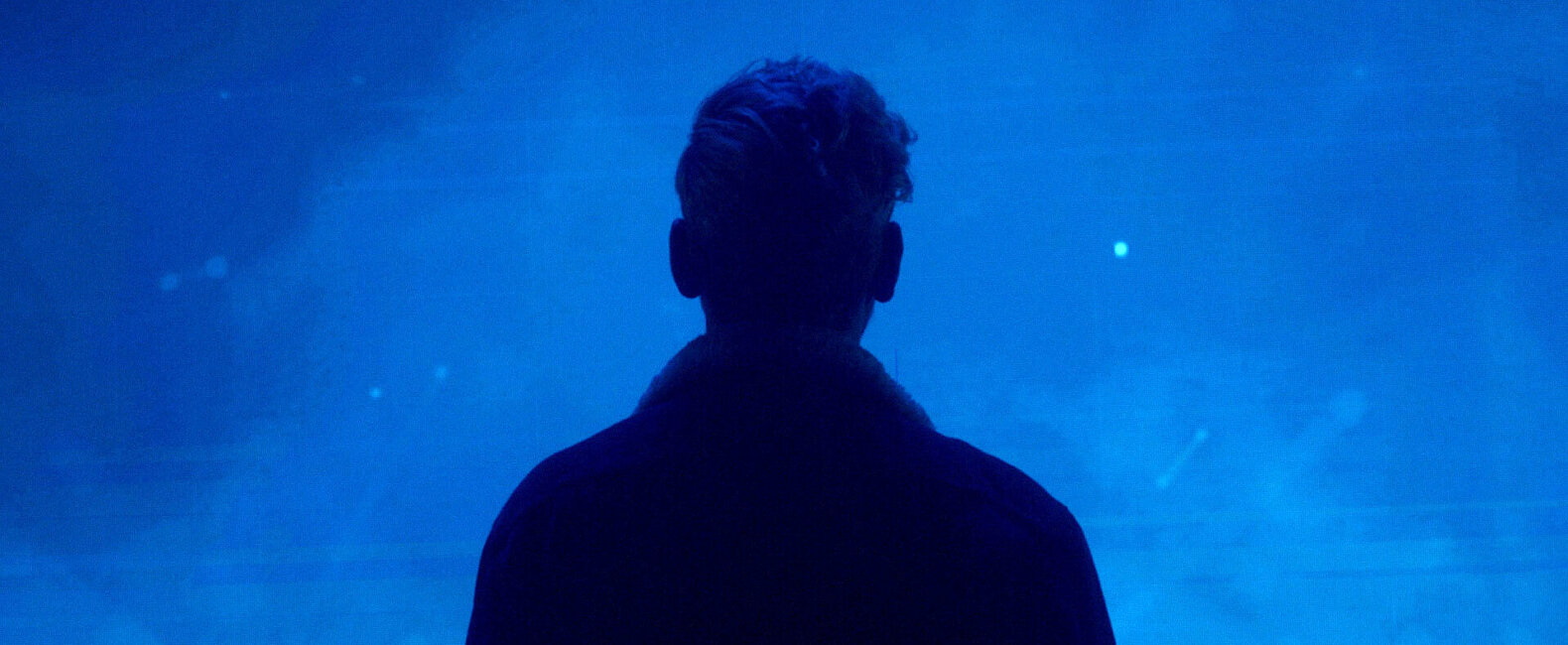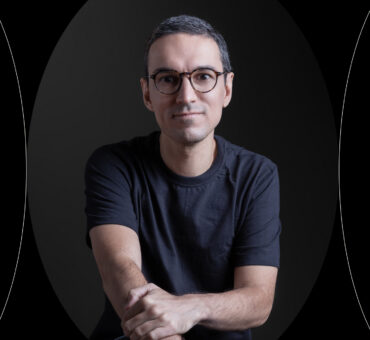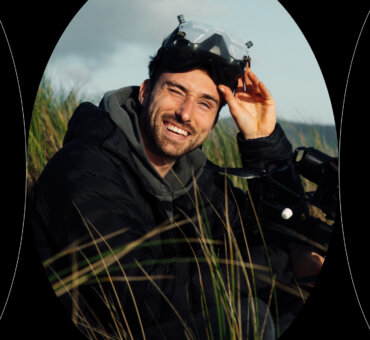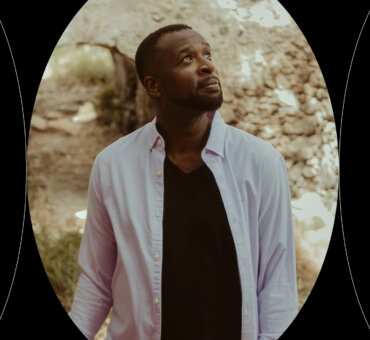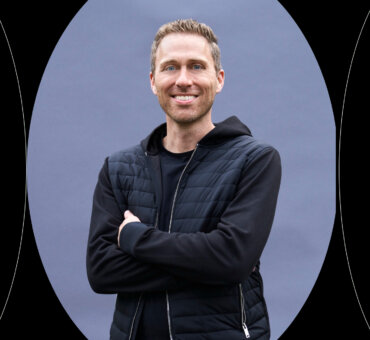Ego is a strange thing in advertising, or any creative field for that matter. In one way, it seems to be essential, but in other ways (like collaborating) it’s the stick in the gears. The small thing that’ll break down the entire process, and maybe the whole agency, in the end. For Danny Hunt, Creative Director at Lucky Generals and formerly at The&Partnership, Saatchi & Saatchi, and more, he’s found the right place for it.
He’s the kind of person who will ask for a job before he gives a portfolio presentation, but also someone who will give all his best ideas entirely to his clients and collaborators. It’s a blend of boldness and humility that’s key in a creative career, and it all starts with putting the work first:
“If everyone’s got the same goal and you know you’re at a place that’s creatively led and everyone’s fighting for the work, it definitely makes your life easier,” he told us. “It’s your baby, isn’t it? And you need to know that people are taking care of it when you’re not in the room.”
Danny is behind iconic work like Argos’ “Book of Dreams” campaign, the searing campaign for The Prince’s Trust, Hovis and much more. In our conversation, we talked about his gutsy first step into advertising, and how Lucky Generals is cultivating a work-first culture every day.
Musicbed: What was your first big break in advertising?
Danny Hunt: I ended up winning a Student D&AD Award right out of college, which got me a placement, and then I came down here [to London]. That was my first job, really. I just seemed to have more ideas and not as much interest in design; I was more interested in conceptual thinking and problem-solving. I eventually ended up at Miles Calcraft Briginshaw Duffy, which no longer exists, but that’s a funny story.
Let’s hear it.
Well, I’d won the Student D&AD and a few North of England advertising awards called the Roses. And then there was a thing called the John Gillard award, which was for people of all disciplines. So everyone’s book went in whether you were a furniture designer, graphic designer, illustrator, creative, advertising, or whatever. They picked what they thought the most creative selection was, and you’d have to go in and do a presentation on your book.
I went in and presented it. And this guy Paul Briginshaw said to all of us, “It’s an honor to be here today; don’t worry if you don’t win. You should feel really proud.” Then I said, “Oh. Well, can I have a job with you then?” [Laughs] He was quite posh and stuttered a bit when I said that. Then he said, “I can give you a placement.” It was pretty lucky.
But my creative partner from Manchester, Jay, decided he didn’t want to move to London. So, I went down to the agency with a different partner. But we didn’t let them know. So my new partner had to pretend his name was Jay [Laughs]. We went in as Danny and Jay, even though his name was Gav. He eventually had like three different nicknames. Anyway, we got the job. Then when we resigned like seven years later, the founders took us out for lunch and we told them that we weren’t the team they thought we were. Paul Brigenshaw got a bit upset. But Malcolm Duffy thought it was just hilarious, he really liked it.
As long as the work is good, right?
Yeah. I mean, we did some really nice stuff there. We got a TV ad out on placement, and that’s what got us the job. We made a music video for Gun Crime and got Ad of the Decade for Hovis. It was a great place full of excellent creatives and talented suits.
Are you still working with the same partner?
We moved to Saatchi & Saatchi and then The&Partnership for a couple of years. But, no, we split up about five years ago and I’ve started CD’ing by myself.
How has that affected your job?
What changes when CDing by yourself is the competition element; you’ve got to give all your best stuff away, whereas when you’re a team you’re always together and competing. But I feel like when you’re a CD you’re always putting the work and the client first. A big thing to get used to was giving my ideas away, which is also the best thing about it at the same time. That was a thing that I had to wrestle with for a bit and get used to.
It’s just an ego thing, you know? You’re sometimes giving your thoughts and someone’s getting credit, so it was learning that you’re still getting credit as a creative director. You’re just not getting credit as a writer anymore. I’m totally into it now, but I reckon that was pretty difficult at first, and I probably wasn’t a good creative director at first because of that really.
It’s hard to replace that collaborative relationship, isn’t it?
Yeah, when I was looking for a partner I always thought it was more important that we got on with each other than him being amazing or me being amazing. You have to sit across from him or her for a long time, don’t you, and watch them pick their nose and smell their farts. My old partner farted a lot. You get stressed and you’re on shoots together, so the main thing for me was always we have to be mates. And then, the second part was if we could do a job together. And you know we’re still mates now, so that’s nice. Although I don’t miss his farts.
When I was looking for a partner when I first moved to London, that was always in my mind. You interview people, it’s really awkward. It’s like you go through headhunters and then you go for a coffee or a beer and you look at each other’s books. It’s like you’re dating but not dating.
And then, I think it’s really important to have the same desire. You can’t have one person who’s always pushing you, who’s full of energy who comes in at 8:00 a.m. every morning and works all the time, and then have someone who’s lazy. You’ve got to have the same work ethic. If you get on and you’ve got the same work ethic it’s probably a numbers thing at that point. You’ll eventually do good because you’re enjoying yourself and you’re working really hard, so the law of probability is you’re probably going to crack at some point, aren’t you?
The best work comes out of people who are enjoying the work. You can always see when a team’s enjoying a brief, because the work’s fun and it’s alive. You can see when teams aren’t enjoying the brief and aren’t working together because it feels like hard work to look at it and the ideas feel, I don’t know, tired.
Earlier you mentioned dealing with bad briefs that no one really wants. How do you stay sane when those come up?
We had a creative director called Jeremy Carr. He did all of the famous Guinness posters. We never got in to see the ECD, so we’d use him as a sounding board to check the work before we took it to the ECD. He was brilliant with us. Every time we used to go in with a brief, he’d just say, “Have you asked the question, ‘Why does this belong in the book?’”
So, we came at everything like it was an opportunity, like we could make a name for ourselves and win lots of awards. The reality was we’d worked all weekend with a 25 x 4 print ad for Hampton Court Palace, and we were trying to win a D&AD Pencil for it. You’ve got to give as much as you can and you’ve got to treat every brief like there’s an opportunity in there, because sometimes the briefs that no one’s looking at are the ones that you can do well with. Unless it’s a 25 x 4 print ad for Hampton Court Palace.
On top of that, you’ve got to be really tenacious. As the junior, as the young creative, you’ve got to respect work. You’ve got to look at what’s going on in the culture. You’ve got to look at what clients you can do work for, and you’ve got to be a bit reactive. Sniff around. If there’s a big brief that one of the top teams has got, you’ve got to just get a hold of it and then have a crack at it. I love when a team says, “I heard this brief’s up and this is what I’m thinking there.” Even if it’s not the best, it shows willingness. And you want to help people like that.
Is that the same kind of energy that brought you to Lucky Generals?
Yeah, I hope so. I knew Danny Brook Taylor for ages. I worked with him, he was my old CD, so it was nice to get rehired by a team of people I knew. I really liked the work and I had heard about the culture. I’ve worked for Danny and Helen Calcraft and Andy Nairn before. I just thought they were really good people to work for, to be honest.
You get to work with lots of people throughout your career. It’s obvious as a creative you know about working with ECDs, but I think until I got older I didn’t realize how important strategy was and how important great account management is, do you know? The older I got, the more I could appreciate how good they all were as a team. They’re very focused on the work.
There’s a very clear, single-minded target at Lucky’s. Everyone’s on the same page. Everyone just wants to make great work. And that makes life so much easier. Earlier, I was talking about having a purpose. All of our meetings are aimed in the same direction; there are no ulterior game plans or anything. It’s just, “Let’s make the best work.” That was something I was really keen on, to be at a creative agency that was all about making the best work possible.
You can see that their ideas funnel back through the company. So I think it makes the culture better, relationships better, it makes meetings better, it makes everything clear.
Does that bring trust into the process, too?
I think so, definitely. There’s nothing worse than the anxiety of the creative—someone not having your back is rubbish and that causes pressure. And then, that causes conflict. It’s really important to know that everyone’s looking after the work and wants to make the best work, because when you’re not in the room with it and someone’s having a chat over there, you can get really worried, right? You can really stress about what they’re saying.
If everyone’s got the same goal and you know you’re at a place that’s creatively led and everyone’s fighting for the work, it definitely makes your life easier. It’s your baby, isn’t it? And you need to know that people are taking care of it when you’re not in the room.
Why do you think other agencies fail to reach that level of collaboration?
As to what makes places bad, I couldn’t say. There’s probably a myriad of things. What makes the good places good is the people. And the shared goal to make great work. You’ve got to be on a mission. And you’ve got to be on a mission together.
Read how director Jane Qian has learned to balance preparation and spontaneity when creating branded content.


